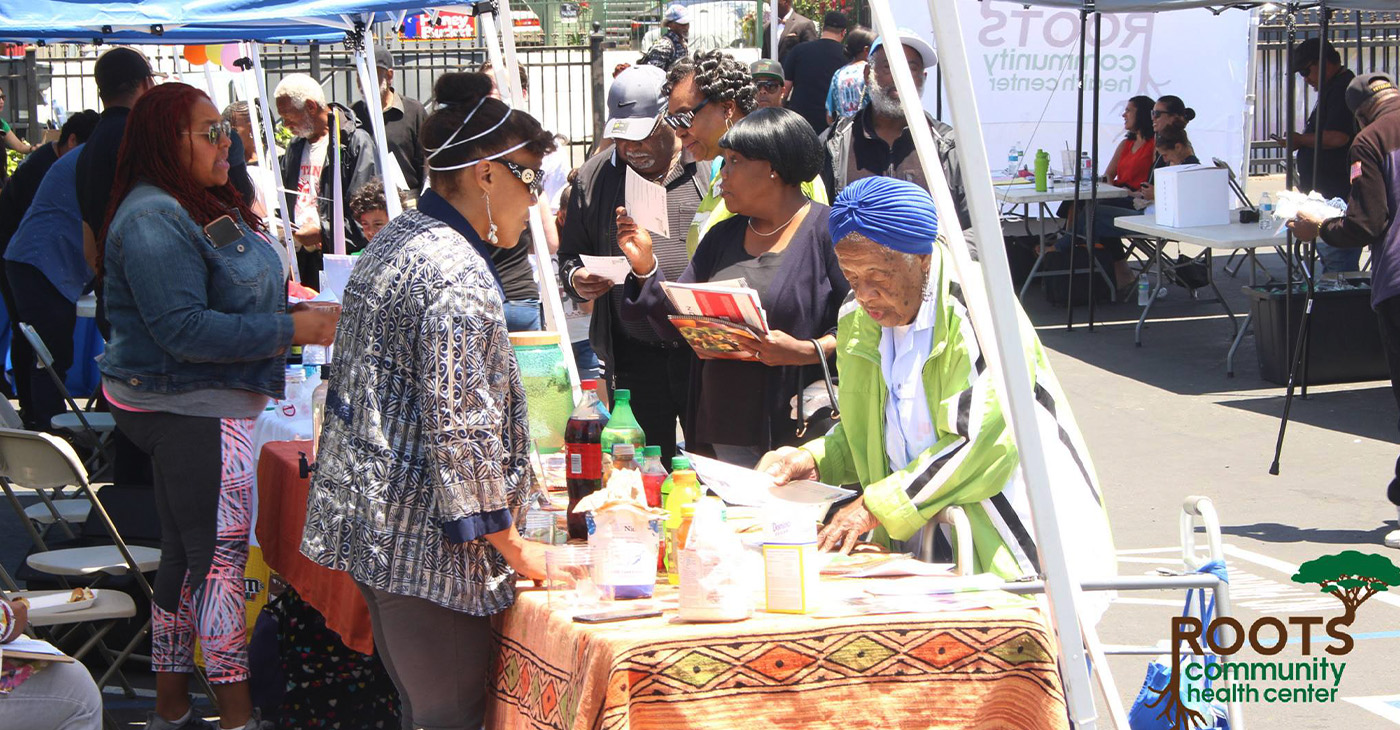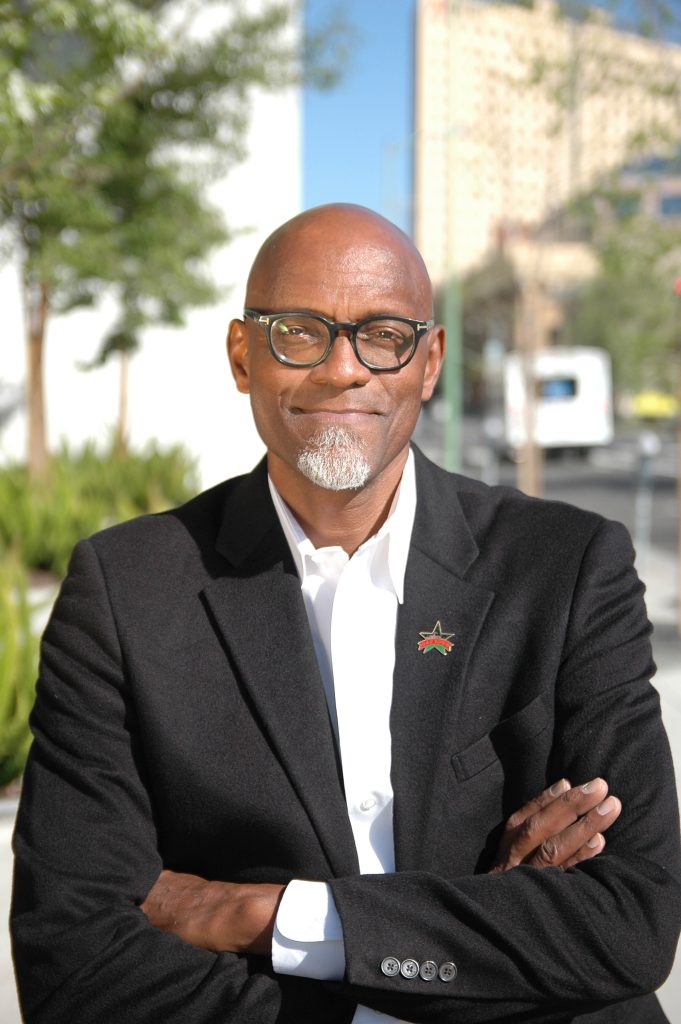Activism
The Rise East Project: The 40 x 40 Initiative to Bring New Vision on Quality of Life in Black East Oakland
In 2021, the 40×40 initiative was created by a coalition of community-based organizations, Roots Community Health Clinic, Black Cultural Zone (BCZ), the Brotherhood of Elders Network and East Oakland Youth Development Center (EOYDC) to address systemic issues of racism and displacement of African Americans in a roughly 40×40 block area in East Oakland, an area with the highest concentration of Black folks in the Bay Area.

By Tanya Dennis
Part 2
Rise East is a $100 million privately funded initiative that will rebuild Black neighborhoods in a 40×40 block area is East Oakland over 10 years. Project partners are Oakland Thrives, the 40×40 Council and Blue Meridian Partners.
The number 40 in sacred scripture signifies, new growth, new life, and transformation.
In African American history, the number 40 signifies the broken promise of 40 acres and a mule made by Secretary of War Edwin Stanton and General William T. Sherman at the end of the Civil War in 1865.
On Oct. 15, 1966, The Black Panther Party demanded 40 acres in reparations for Black folks in their party’s ten-point program demanding payment for that overdue debt.
In 2021, the 40×40 initiative was created by a coalition of community-based organizations, Roots Community Health Clinic, Black Cultural Zone (BCZ), the Brotherhood of Elders Network and East Oakland Youth Development Center (EOYDC) to address systemic issues of racism and displacement of African Americans in a roughly 40×40 block area in East Oakland, an area with the highest concentration of Black folks in the Bay Area.

Greg Hodge is CEO of the Brotherhood of Elders Network. Courtesy photo.
Greg Hodge, CEO of the Brotherhood of Elders Network says “Roots was already serving this area under the leadership of Dr. Noha Aboelata when the pandemic hit, hitting the Black population the hardest, the most underserved in the city.
Within this area, household income and life expectancy are lowest among Black residents compared to other racial/ethnic groups. There is a 15-year gap in life expectancy between Black residents in East Oakland (70 years) and white residents of the Oakland Hills (85 years), Hodge said.
Dr. Aboelata and staff questioned how they could further support the nearly 50% of Black families living in poverty and safely address the issues face by the unhoused, the re-entry population and youth.
The Black Cultural Zone has served as the epicenter of growth and activity from the beginning. East Oakland Youth Development Center and the Brotherhood of Elders Network are now committed partners who are working to bring real change to East Oakland.
According to Roots, the vision is to transform the 40×40 block area into a place where people have what they need to heal, thrive, rejoice, and prosper, a vision far different from today’s reality where African Americans experience the worst quality of life indicators, including life expectancy, homelessness, and educational success. As the demographics of Oakland rapidly change, and with the COVID-19 pandemic disproportionately affecting the Black community, Roots members knew time was of the essence in addressing these disparities.
According to Hodge, “The 10-year Rise East plan will make deep and lasting improvements in the 40×40 and will affect 30,000 residents of African descent.”
More than 400 residents contributed their ideas to the Rise East plan. Together, residents and the 40×40 coalition launched the $100 million neighborhood improvement Rise East project with the assistance of the Blue Meridian Group.
For continuing success and growth, investment from the Alameda County, the City of Oakland, and the Oakland Unified School District is required.
As partners in Oakland Thrives, these institutions supported Rise East in concept. “Now it’s time for them to invest resources,” Hodge said. Blue Meridian’s money must be matched for Rise East to be a successful public investment.
Activism
Oakland Post: Week of April 24 – 30, 2024
The printed Weekly Edition of the Oakland Post: Week of April 24 – 30, 2024

To enlarge your view of this issue, use the slider, magnifying glass icon or full page icon in the lower right corner of the browser window. ![]()
Activism
Oakland Post: Week of April 17 – 23, 2024
The printed Weekly Edition of the Oakland Post: Week of April 17 – 23, 2024

To enlarge your view of this issue, use the slider, magnifying glass icon or full page icon in the lower right corner of the browser window. ![]()
Activism
Oakland Schools Honor Fred Korematsu Day of Civil Liberties
Every Jan. 30, OUSD commemorates the legacy of Fred Korematsu, an Oakland native, a Castlemont High School graduate, and a national symbol of resistance, resilience, and justice. His defiant stand against racial injustice and his unwavering commitment to civil rights continue to inspire the local community and the nation. Tuesday was “Fred Korematsu Day of Civil Liberties and the Constitution” in the state of California and a growing number of states across the country.

By Post Staff
Every Jan. 30, OUSD commemorates the legacy of Fred Korematsu, an Oakland native, a Castlemont High School graduate, and a national symbol of resistance, resilience, and justice.
His defiant stand against racial injustice and his unwavering commitment to civil rights continue to inspire the local community and the nation. Tuesday was “Fred Korematsu Day of Civil Liberties and the Constitution” in the state of California and a growing number of states across the country.
One OUSD school is named in his honor: Fred T. Korematsu Discovery Academy (KDA) elementary in East Oakland.
Several years ago, founding KDA Principal Charles Wilson, in a video interview with anti-hate organization “Not In Our Town,” said, “We chose the name Fred Korematsu because we really felt like the attributes that he showed in his work are things that the children need to learn … that common people can stand up and make differences in a large number of people’s lives.”
Fred Korematsu was born in Oakland on Jan. 30, 1919. His parents ran a floral nursery business, and his upbringing in Oakland shaped his worldview. His belief in the importance of standing up for your rights and the rights of others, regardless of race or background, was the foundation for his activism against racial prejudice and for the rights of Japanese Americans during World War II.
At the start of the war, Korematsu was turned away from enlisting in the National Guard and the Coast Guard because of his race. He trained as a welder, working at the docks in Oakland, but was fired after the bombing of Pearl Harbor in 1941. Fear and prejudice led to federal Executive Order 9066, which forced more than 120,000 Japanese Americans out of their homes and neighborhoods and into remote internment camps.
The 23-year-old Korematsu resisted the order. He underwent cosmetic surgery and assumed a false identity, choosing freedom over unjust imprisonment. His later arrest and conviction sparked a legal battle that would challenge the foundation of civil liberties in America.
Korematsu’s fight culminated in the Supreme Court’s initial ruling against him in 1944. He spent years in a Utah internment camp with his family, followed by time living in Salt Lake City where he was dogged by racism.
In 1976, President Gerald Ford overturned Executive Order 9066. Seven years later, the 9th Circuit Court of Appeals in San Francisco vacated Korematsu’s conviction. He said in court, “I would like to see the government admit that they were wrong and do something about it so this will never happen again to any American citizen of any race, creed, or color.”
Korematsu’s dedication and determination established him as a national icon of civil rights and social justice. He advocated for justice with Rosa Parks. In 1998, President Bill Clinton gave him the Presidential Medal of Freedom saying, “In the long history of our country’s constant search for justice, some names of ordinary citizens stand for millions of souls … To that distinguished list, today we add the name of Fred Korematsu.”
After Sept. 11, 2001, Korematsu spoke out against hatred and discrimination, saying what happened to Japanese Americans should not happen to people of Middle Eastern descent.
Korematsu’s roots in Oakland and his education in OUSD are a source of great pride for the city, according to the school district. His most famous quote, which is on the Korematsu elementary school mural, is as relevant now as ever, “If you have the feeling that something is wrong, don’t be afraid to speak up.”
-

 Activism4 weeks ago
Activism4 weeks agoOakland Post: Week of March 27 – April 2, 2024
-

 #NNPA BlackPress4 weeks ago
#NNPA BlackPress4 weeks agoBeloved Actor and Activist Louis Cameron Gossett Jr. Dies at 87
-

 Community1 week ago
Community1 week agoFinancial Assistance Bill for Descendants of Enslaved Persons to Help Them Purchase, Own, or Maintain a Home
-

 Activism3 weeks ago
Activism3 weeks agoOakland Post: Week of April 3 – 6, 2024
-

 Business2 weeks ago
Business2 weeks agoV.P. Kamala Harris: Americans With Criminal Records Will Soon Be Eligible for SBA Loans
-

 Activism2 weeks ago
Activism2 weeks agoOakland Post: Week of April 10 – 16, 2024
-

 Community2 weeks ago
Community2 weeks agoAG Bonta Says Oakland School Leaders Should Comply with State Laws to Avoid ‘Disparate Harm’ When Closing or Merging Schools
-

 Community7 days ago
Community7 days agoOakland WNBA Player to be Inducted Into Hall of Fame























































